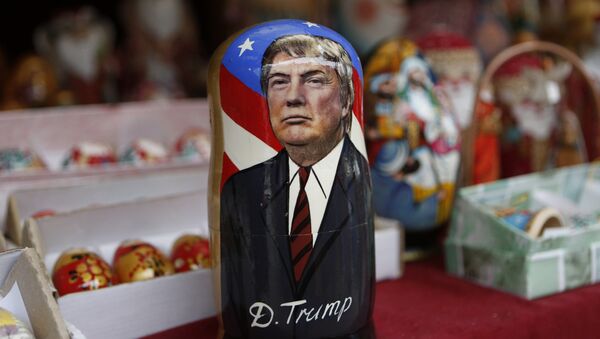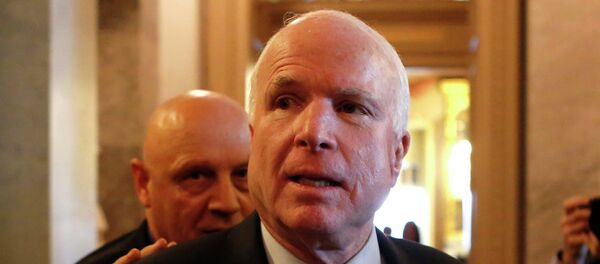Instead of pushing brinksmanship with Moscow, the memo identifies defeating Daesh (ISIL/ISIS), creating a new cybersecurity strategy, building a stronger military, and finding and eliminating defense inefficiencies as the US's main national security priorities.
Concerned by these priorities, Foreign Policy made the case that Russia, not these other issues, was the main threat to US national security. Its evidence? That "for years, top cabinet officials at the Defense Department and the intelligence community cited Russia as the foremost threat" to America, "because of its vast nuclear arsenal, sophisticated cyber capabilities, recently modernized military, and willingness to challenge the United States and its allies in the Middle East, Eastern Europe and other regions."
In other words, the argument seems to be that treating Russia as a threat is now the norm, so that's how things should continue in the future.
Trump began making enemies among members of Washington's anti-Russian establishment soon after he began his presidential campaign last summer, dispatching over a dozen Republican opponents before moving on to take on Democratic Party nominee Hillary Clinton. In the run-up to last month's vote, Clinton and other Democratic Party politicians started accusing Russia of directly interfering in the US election, while the media insulted Trump and called him Vladimir Putin's "lackey."
But Trump doesn't seem to have backed down, saying that it would be "great" if Moscow and Washington could join forces to fight the global jihadist threat. Last week, the President-elect nominated ExxonMobil CEO Rex Tillerson for the post of secretary of state. Critics soon pointed out that Tillerson had received an Order of Friendship medal from the Russian president, which reignited conspiracy theories that Trump and Putin were secretly best buddies.
In addition to the 'concerned' Washington officials, Tuesday's leaked memo apparently also enraged mainstream journalists enough for them to try to think up clever headlines in their coverage of the story. Daily Kos's header reads "How much does Trump love Putin? Russia isn't even on his defense priorities list." The Washington Free Beacon's headline complains "Russia Missing From Trump's 'Defense Priorities' Despite Pentagon Warnings," putting the phrase 'defense priorities' in ironic quotation marks. PoliticusUSA's headline, which blew up on Twitter, takes the cake, saying that "Manchurian President Trump Doesn't List Russia Among Department of Defense Priorities."
Journalists, political activists and others also took to social media to complain about the memo, apparently failing to read the section of the FP piece where a Trump transition representative stressed that the memo was "not comprehensive."
Putin
— igorvolsky (@igorvolsky) 20 декабря 2016 г.
hacked our election
has nuclear arsenal
is supporting Assad
But Russia isn't top defense priority for Trump https://t.co/Aa9SSDuOqo
— E.H. Hau (@ActionTime) 21 декабря 2016 г.
— David Rothkopf (@djrothkopf) 10 декабря 2016 г.
— Fernando Espuelas (@EspuelasVox) 21 декабря 2016 г.
Other users were more upbeat however, pointing out that the leaked memo seems to be a concern to the establishment politicians, and to the US military-industrial complex. Some suggested that it would be a good idea to be friends with Russia for a change, instead of needlessly antagonizing Moscow.
Neocons in MELTDOWN: Leaked Trump Defense Memo Does Not Name Russia as a Threat https://t.co/BcxgdvZiOT pic.twitter.com/n5ovJHupgO
— Russia Insider (@RussiaInsider) 21 декабря 2016 г.
— Zero Anthropology (@ZeroAnthro) 21 декабря 2016 г.
— mainwashed (@mainwashed) 21 декабря 2016 г.
Only time will tell what Russia-US relations will look like after President-elect Trump is sworn in. However, the fact that most of the mainstream US media, think tank experts and long-time Washington policymakers have shown this much concern may actually be a good sign of things to come.




